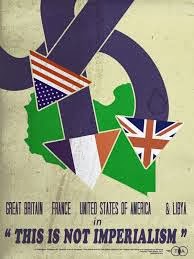Throughout the course of the United States there has been an ample amount of interaction with foreign nations but it all started in 1898 when they started. Between 1901 and 1920 the US increasingly intervened in the affairs of other nations which were the presidency of Theodore Roosevelt and Woodrow Wilson. Both had the desire to move the United States forward into the mainstream of world power by getting involved in foreign affairs; however, they had different means to accomplish their goals. Roosevelt believed in imperialism and Wilson wanted to spread peace among the nations.
Theodore Roosevelt utilized tactics that were a bit drastic for helping the American nation progress for the reason that he wanted to empower the nation. Roosevelt wanted to aid other nations but his real intentions was to gain something for America. For instance, he helped the Panama citizens in their revolution but then he created the Panama Canal so that America could obtain a better way in transporting goods. Also Roosevelt created the Big Stick Policy which was to use military force against any nation that would get out of line which was a bit brutal. Roosevelt also was devious when he was in the Great White Fleet(1907) which was a group of 16 gleaming white ships on a cruise around the world to display the nation's naval power.Roosevelt also engendered the Roosevelt Corollary which was an addition to the Monroe Doctrine which was asserting that the United States might intervene in the affairs of an American republic threatened with seizure or intervention by a European country.
Woodrow Wilson believed in utilizing the American power to spread peace among the needed nations. He did not want to dominate a nation or use them such as Roosevelt he wanted to genuinely assist others in their time of need. Wilson wanted to join all the nations together in order to obtain peace and so that there is not another war. He created the fourteen points for this reason which were basically was that the United States needed to be obtain peace negotiations after World War I. Out of the Fourteen Points came the League of Nation or the League to Enforce Peace which was to unite all of the nations. Wilson felt strongly about the League of Nations he died for the cause, he hoped that it would pass congress yet it never did. Wilson also wanted to avert war of all coast which was when he had engendered the “peace without victory” which was a moving address that correctly declared only a "peace without victory" beating Germany without embarrassing them would be lasting.
However, both presidents Roosevelt and Wilson felt strongly about the progressive state of America. They wanted the nation to grow as a country due to the fact that they felt that America was brawny and should help the nations that could not fend for themselves. Both presidents developed United States power to free the people of other nations from what they saw as despotism and enslavement. They were involved in saving other nations like Panama or Cuba, they just wanted to make a significant change. The intention of Roosevelt might not have been for the good of the foreign nation but Americans benefit but he still helped the nation in need. Wilson did anything in his power to unite the nations as one so that there could not be any war among the world. Both men were just trying to progress America in the best way they considered to be the best.
Roosevelt and Wilson both felt that they needed to help other nations for the reason that they were so powerful. However, both men had different ways in accomplishing this objective. Roosevelt wanted to conquer while Wilson wanted to obtain peace.
Key Terms
- Fourteen Point
- No More secret treaties.
- A League of Nations, an international organization that would keep the peace and settle world disputes.
- "Self-determination," or independence for oppressed minority groups who'd choose their government
- Adjustment of colonial claims in the interests of natives and colonizers.
- Reduction of armament burdens.
- A removal of economic barriers among nations.
- Freedom of the seas was to be maintained.
- Great White Fleet(1907)
- A group of 16 gleaming white ships on a cruise around the world to display the nation's naval power.
- Roosevelt Corollary
- Roosevelt's 1904 extension of the Monroe Doctrine, stating that the United States has the right to protect its economic interests in South And Central America by using military force
- Big Stick Policy
- Roosevelt's philosophy - In international affairs, ask first but bring along a big army to help convince them. Threaten to use force, act as international policemen
- League of Nation
- an international organization that would keep the peace and settle world disputes
- “peace without victory”
- part of Woodrow Wilson's final attempt to avert war, a moving address that correctly declared only a "peace without victory" (beating Germany without embarrassing them) would be lasting



+(1).jpg)

.jpg)



.jpg)
.jpg)

.jpg)

.jpg)








